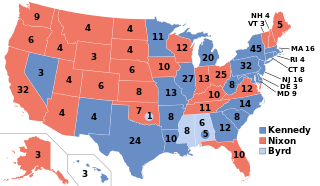
The 1960 United States presidential election was the 44th quadrennial presidential election. It was held on Tuesday, November 8, 1960. In a closely contested election, Democrat John F. Kennedy defeated incumbent Vice President Richard Nixon, the Republican Party nominee. This was the first election in which all fifty states participated, and the last in which the District of Columbia did not. It was also the first election in which an incumbent president was ineligible to run for a third term due to the term limits established by the 22nd Amendment.

The Governor of California is the head of government of the U.S. state of California. The California Governor is the chief executive of the state government and the commander-in-chief of the California National Guard and the California State Military Reserve.

Samuel William Yorty was an American politician from Los Angeles, California. He served as a member of the United States House of Representatives and the California State Assembly, but he is most remembered for his turbulent three terms as the 37th Mayor of Los Angeles from 1961 to 1973. The colorful "Mayor Sam" earned numerous nicknames from both admirers and detractors, such as Travelin' Sam, Airplane Sam, Shoot-From-the-Lip Sam, the Maverick Mayor, Mad Sam Yorty, Scrappy Sam, Suitcase Sam, Saigon Sam, and the Reform Republican.

The 1970 United States Senate elections was an election for the United States Senate, taking place in the middle of Richard Nixon's first term as President. The Democrats lost a net of three seats, while the Republicans and the Conservative Party of New York picked up one net seat each, and former Democrat Harry F. Byrd Jr. was re-elected as an independent.

The 1966 United States Senate elections was an election on November 8, 1966 for the United States Senate which occurred midway through the second term of President Lyndon B. Johnson. With divisions in the Democratic base over the Vietnam War, and with the traditional mid-term advantage of the party not holding the presidency, the Republicans took three Democratic seats. Despite Republican gains, the balance remained overwhelmingly in favor of the Democrats, who retained a 64–36 majority. This was also the first election that occurred after the Voting Rights Act of 1965 became law.

The 1964 United States Senate elections coincided with the election of President Lyndon B. Johnson by an overwhelming majority, to a full term. His Democratic Party picked up a net two seats from the Republicans. As of 2019, this is the last time either party has had a two-thirds majority in the Senate, which would have hypothetically allowed the Senate Democrats to override a veto, convict and expel certain officials, or invoke cloture without any votes from Republicans. The Senate election coincided with Democratic gains in the House in the same year.
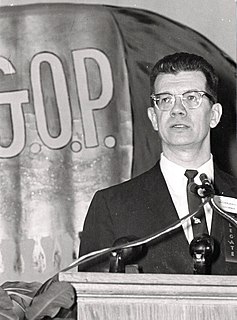
William Douglas Workman Jr., known as W. D. Workman Jr., was a journalist, author, and a pioneer in the development of the 20th century South Carolina Republican Party. He carried his party's banner as a candidate for the United States Senate in 1962 and for the governorship in 1982. He lost to the Democrats, Olin D. Johnston and Richard Riley, respectively.

United States gubernatorial elections were held Tuesday, November 4, 2008 in 11 states and two territories. Prior to the election, eight of the total seats were held by Democrats and five by Republicans. Two governors were prohibited by term limits from seeking re-election in 2008.

The California gubernatorial election, 1966 was held on November 8, 1966. The election was a contest between incumbent Governor Pat Brown, the Democratic candidate, and actor Ronald Reagan, the Republican candidate. Reagan mobilized conservative voters and defeated Brown.

The California gubernatorial election, 1958 took place on November 4, 1958.
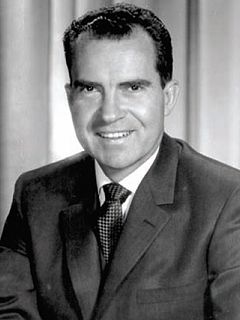
The 1960 United States presidential election in California refers to California's participation in the 1960 United States presidential election. California voted for the Republican nominee, Vice President Richard Nixon, over the Democratic nominee, Massachusetts Senator John F. Kennedy. Although California was Nixon's home state, which he represented in the House and Senate, and initial political base, his margin of victory over Kennedy turned out to be extremely narrow; in fact, it was the closest of the states that Nixon won in 1960. On the morning of November 9, the NBC victory desk erroneously projected California to Kennedy.
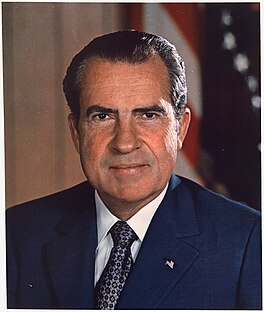
The so-called "last press conference" of Richard Nixon took place on November 7, 1962, following his loss to Democratic incumbent Pat Brown in the 1962 California gubernatorial election. Appearing before 100 reporters at the Beverly Hilton Hotel, an embittered Nixon lashed out at the media, proclaiming that "you don't have Nixon to kick around any more, because, gentlemen, this is my last press conference."
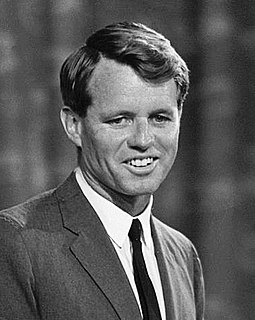
The 1964 United States Senate election in New York was held on November 3, 1964. Incumbent Republican U.S. Senator Kenneth Keating ran for re-election to a second term, but was defeated by Robert F. Kennedy.
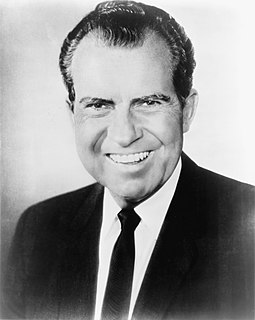
The 1968 United States presidential election in New Mexico took place on November 5, 1968. All fifty states and The District of Columbia, were part of the 1968 United States presidential election. New Mexico voters chose four electors to represent them in the Electoral College, who voted for president and vice president.

The 1968 United States presidential election in Massachusetts took place on November 5, 1968, as part of the 1968 United States presidential election, which was held throughout all 50 states and D.C. Voters chose 14 representatives, or electors to the Electoral College, who voted for president and vice president.

The 1960 United States presidential election in Massachusetts took place on November 8, 1960, as part of the 1960 United States presidential election, which was held throughout all 50 states. Voters chose 16 representatives, or electors to the Electoral College, who voted for president and vice president.
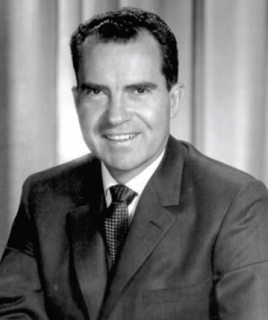
The 1960 United States presidential election in New Hampshire took place on November 8, 1960, as part of the 1960 United States presidential election, which was held throughout all 50 states. Voters chose four representatives, or electors to the Electoral College, who voted for president and vice president.

The 1968 United States presidential election in Maine took place on November 5, 1968, as part of the 1968 United States presidential election, which was held throughout all fifty states and D.C. Voters chose four representatives, or electors to the Electoral College, who voted for president and vice president.

The 1968 United States presidential election in Texas was held on November 5, 1968. All 50 states and the District of Columbia, were part of the United States presidential election of 1968. Texas chose twenty-five electors to represent them in the Electoral College, who voted for president and vice president.





















